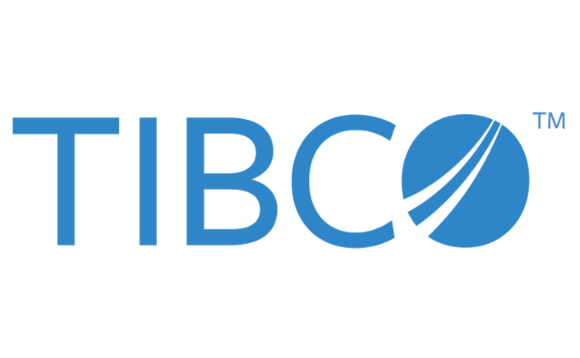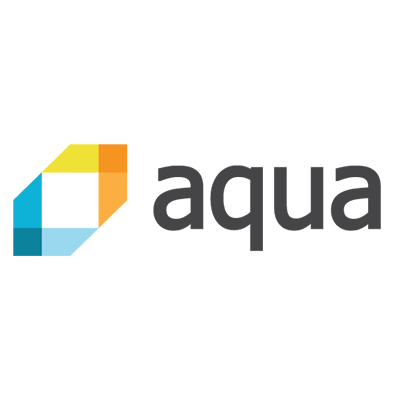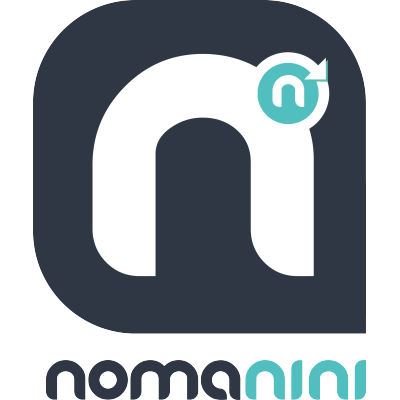Published
- 04:00 am

TIBCO Software Inc., a global leader in integration, API management, and analytics, today announced a new integration with Snowflake, the data warehouse built for the cloud. This integration will benefit cloud-native enterprises leveraging TIBCO Spotfire® advanced data exploration and analytics capabilities to discover insights in the Snowflake Data Warehouse. The comprehensive solution empowers business analysts and data scientists managing some of the world’s largest data sets to deploy advanced analytics at scale, without performance degradation, and to drive better, more efficient decision-making.
“We are very excited about Spotfire’s native support for Snowflake,” said Anthony Fiorino, vice president and chief data officer, analytics, Verisk Insurance Solutions. “Verisk has been working with TIBCO Spotfire on Snowflake for a number of months and has seen significant query performance improvement resulting from the combination of these two best-in-class technologies: Snowflake’s unique cloud-built architecture and TIBCO Spotfire’s powerful analytics engine. We are looking forward to seeing what we can achieve next with the new Snowflake connectivity option."
"Many customers are going cloud native and TIBCO helps get them there quickly. With TIBCO’s native support for Snowflake, it’s as easy to discover insights from cloud-native data stores as from a spreadsheet,” said Mark Palmer, senior vice president and general manager, data and analytics, TIBCO. “By working with Snowflake and seamlessly integrating the two solutions, we can bring advanced analytics to more business analysts and data engineers, and make a significant impact on both operations."
With the new native TIBCO Spotfire connector for Snowflake, TIBCO now offers customers enhanced data-access capabilities, enabling users to continue to scale their analytics workloads, while maintaining high performance levels and reducing costs. By integrating with Snowflake, Spotfire® can easily handle a heavy ETL (extract, transform, load) job without sacrificing ad-hoc query performance, effectively splitting computing power from machine-learning workloads. Connectivity to Snowflake is self-service, enabling users to gain insights from Spotfire analyses natively within a single environment.
“With Snowflake’s mission to enable organisations to get the most out of their data and Spotfire’s extensive industry reach, our partnership provides strong value to joint customers,” said Colleen Kapse, vice president, partners, Snowflake. “Data volumes in the enterprise are at an all-time high and companies need solutions that will fuel their digital transformation journeys. With TIBCO and Snowflake, customers will reap the benefits of being able to manage data at scale and achieve valuable insights.”
Related News
- 03:00 am

Aqua Security, the leading platform provider for securing container-based, serverless, and cloud native applications, today announced that the company’s flagship platform, Aqua CSP, is available on VMware Cloud Marketplace™.
VMware Cloud Marketplace enables customers to discover and deploy validated, third-party solutions for VMware-based platforms – across public, private and hybrid cloud environments. Once validated, partners can easily publish their solutions for VMware customers across platforms. Customers will be able to access these third-party partner solutions directly from their cloud environments, while also being able to experience the convenience of features such as notifications, reporting, and analytics.
As a VMware PKS Partner, Aqua CSP was architected specifically to address the challenges of visibility, control, and isolation in container environments, while remaining transparent and non-intrusive to DevOps, allowing organisations to reap the business benefits of containers while improving their security posture. Using Aqua CSP on VMware and Pivotal PKS provides enterprise users with an end-to-end security solution, including:
- Image scanning for known vulnerabilities, malicious code detection, and enforcement of image integrity throughout the software development lifecycle
- Vulnerability shielding, using a form of virtual patching to detect and prevent attempts to exploit known vulnerabilities
- Assessment of the security posture of Kubernetes clusters against the hundreds of tests of the CIS Benchmark for Kubernetes
- Penetration testing of Kubernetes against dozens of attack vectors
- Runtime controls to monitor container activity in real time, based on custom policies and machine-learned behavioral profiles, to alert on or block suspicious activities and processes
“Aqua Security is very excited to be a part of the VMware Cloud Marketplace,” said Upesh Patel, VP of Business Development for Aqua Security. “We believe that this marketplace will make it easy for VMware customers to deploy enterprise grade software in a complex computing environment.” Patel goes on to note that, “customers can build mission critical applications on Pivotal or VMware PKS and will be able to secure their entire application lifecycle in a scalable way, while automating DevSecOps processes.”
“We are pleased to see Aqua Security CSP available on VMware Cloud Marketplace,” said Milin Desai, GM, Cloud Services, VMware. “Validated technologies, such as Aqua CSP, enable IT teams to reduce cost, increase efficiency, and create operational consistency across cloud environments. We’re excited to work with partners such as Aqua Security to empower customers to fully leverage their cloud investments.”
Related News
- 08:00 am

Abacus Group, a leading provider of hosted IT solutions and services for alternative investment firms, today announced it has successfully completed the Service Organization Controls (SOC1) Type 2 audit for its application hosting and managed cloud services. The successful completion of the SSAE18 examination in July marks Abacus’ ninth consecutive year of completing a SAS70/SSAE16/SSAE18 audit, ensuring the highest level of security and internal controls.
By achieving this high level of certification, Abacus Group meets the Securities and Exchange Commision (SEC) Office of Compliance Inspections and Examinations (OCIE) guidelines for funds to perform their due diligence. This standardization helps financial firms increase efficiencies in areas including fund operations and cybersecurity.
“Abacus has a longstanding history of commitment to ensuring that our services meet and exceed these industry protocols in audit and control,” said Chris Grandi, CEO of Abacus Group. “These high standards validate the integrity of our proprietary platform so that our clients can be confident in our products and services.”
Abacus builds upon its commitment for security and control by completing annual audits. The most recent, the SOC1 audit, was conducted for the period between July 1, 2018 and June 30, 2019, by an independent third-party auditor. The SSAE18 SOC 1, Type 2 is an independent service auditor’s examination of a service organization’s systems and the suitability of the design and operating effectiveness of controls. The SSAE18 was implemented by the American Institute of Certified Public Accountants, replacing the SSAE16, which replaced the SAS70 examination as the leading examination of internal controls at a service organization that are likely to be relevant to financial audits.
SOC1 reports are regarded as the industry standard for private cloud service providers offering application hosting and managed services. The examination ensures that Abacus employs robust control objectives across key functions that support its client offerings, including:
Logical security
Network and monitoring
Data backup
Maintenance and change control
Customer provisioning
Related News
- 08:00 am

TIBCO Software Inc., a global leader in integration, API management, and analytics, today announced a new integration with Snowflake, the data warehouse built for the cloud. This integration will benefit cloud-native enterprises leveraging TIBCO Spotfire® advanced data exploration and analytics capabilities to discover insights in the Snowflake Data Warehouse. The comprehensive solution empowers business analysts and data scientists managing some of the world’s largest data sets to deploy advanced analytics at scale, without performance degradation, and to drive better, more efficient decision-making.
“We are very excited about Spotfire’s native support for Snowflake,” said Anthony Fiorino, vice president and chief data officer, analytics, Verisk Insurance Solutions. “Verisk has been working with TIBCO Spotfire on Snowflake for a number of months and has seen significant query performance improvement resulting from the combination of these two best-in-class technologies: Snowflake’s unique cloud-built architecture and TIBCO Spotfire’s powerful analytics engine. We are looking forward to seeing what we can achieve next with the new Snowflake connectivity option."
"Many customers are going cloud native and TIBCO helps get them there quickly. With TIBCO’s native support for Snowflake, it’s as easy to discover insights from cloud-native data stores as from a spreadsheet,” said Mark Palmer, senior vice president and general manager, data and analytics, TIBCO. “By working with Snowflake and seamlessly integrating the two solutions, we can bring advanced analytics to more business analysts and data engineers, and make a significant impact on both operations."
With the new native TIBCO Spotfire connector for Snowflake, TIBCO now offers customers enhanced data-access capabilities, enabling users to continue to scale their analytics workloads, while maintaining high performance levels and reducing costs. By integrating with Snowflake, Spotfire® can easily handle a heavy ETL (extract, transform, load) job without sacrificing ad-hoc query performance, effectively splitting computing power from machine-learning workloads. Connectivity to Snowflake is self-service, enabling users to gain insights from Spotfire analyses natively within a single environment.
“With Snowflake’s mission to enable organisations to get the most out of their data and Spotfire’s extensive industry reach, our partnership provides strong value to joint customers,” said Colleen Kapse, vice president, partners, Snowflake. “Data volumes in the enterprise are at an all-time high and companies need solutions that will fuel their digital transformation journeys. With TIBCO and Snowflake, customers will reap the benefits of being able to manage data at scale and achieve valuable insights.”
Related News
- 08:00 am

In a move to help millions of Americans have access to a fee-free safety net, mobile banking company Varo Money, Inc. announced today No Fee Overdraft, a feature where customers can overdraft their bank account balance up to $50 with no fee and no interest when they meet certain eligibility requirements.*
“Financial institutions earned $34.5 billion from overdraft fees alone last year and the vast majority of overdraft fee revenue came from customers who can least afford it,” said Colin Walsh, CEO of Varo Money. “Paying for a tank of gas to get to work could cost you a fee of $35 if you’re running a few dollars short just before payday. We understand that having a safety net to pay bills and stretching a paycheck is important. We built a way for people to do that safely without having to tap credit cards.”
According to the CFPB, the average overdraft is $50.¹ The most common fee associated with overdraft is $35.² Varo’s new service allows $50 to be overdrawn but with no fees or other charges for eligible customers.
As the most requested feature by thousands of Varo’s customers, the launch of No Fee Overdraft is another step forward in the company’s mission to be the best banking company in the United States for consumers looking to build their financial health. No Fee Overdraft adds to the products and services Varo already provides including bank accounts with no monthly fees, high-yield savings accounts with no minimum balance requirement, automated savings tools, and early direct deposit** — all of which are designed to build an individual’s financial health.
“As an investor in Varo, I am proud to support a mission-driven company that is actively working on services with broad social impact — eliminating fees while increasing accessibility — to help everyone in America achieve financial success,” said Lance Reddick, actor and social impact investor.
4 in 10 millennials overdrew their bank account last year
Four out of 10 millennials incurred at least one overdraft fee in the last year, according to findings in a 2019 Varo survey conducted with Qualtrics.³ Of those who overdrew their account in the past year and paid a fee, the survey showed the majority (41%) paid more than $100 total in fees. A smaller group, 15%, paid more than $200, the survey showed.
In addition to the financial toll of fees, survey respondents also cited a kind of psychological hangover from having paid an overdraft fee, with 59% saying they felt annoyed, taken advantage of, or enraged after being charged a fee.
6 out of 10 Millennials don’t have $500 in emergency savings
The survey data also showed just how strapped many young Americans are when it comes to meeting basic expenses. According to Varo’s survey, 62% of millennials have had to cut back or give something up in order to pay for a tank of gas in the past year; 14% have had to do this almost every month. An earlier 2018 survey from Varo Money showed that 60% of millennials don’t have access to $500 in emergency cash.
Varo is working to become the first mobile-centric national bank in U.S. history, and believes banking should be fee-free, easy, and accessible to everyone through a smartphone.
Related News
- 07:00 am

Mortgage adviser, Affinity Mortgages have chosen Mortgage Brain as its partner to help drive efficiency across the business.
The new partnership enables Affinity to benefit from The Key, Mortgage Brain’s point-of-sale compliance and CRM system and its integration with MortgageBrain Anywhere, Mortgage Brain’s online sourcing system.
Featuring a secure Client Portal, which can save advisers up to an hour per case, The Key offers an end to end process with one login, single data entry, reports and templates, lead generation directly back into system and a myriad of partner integrations.
As part of the agreement Mortgage Brain’s innovative first and second charge integrated online sourcing system, MortgageBrain Anywhere, is also being used by Affinity’s advisers for a fast, thorough and accurate mortgage search and selection process for their clients.
Jamie Lewis, Managing Director, Affinity Mortgages, comments, “We strive to find the best mortgages that will work for our clients, providing them with the right financial product that matches their circumstances. This partnership will support us in achieving these goals, while giving us more time to focus on creating value for our clients. We have a very clear vision on adding value to clients with the assistance of technology but without replacing humans within the mortgage process and Mortgage Brain really stood out as the most capable firm to assist us in this vision”
Mark Lofthouse, CEO of Mortgage Brain, adds, “The mortgage industry is changing – technology enables us to increasingly do more with less. We support
proactive mortgage advisors like Affinity and to equip them with the right tools to focus on delivering the best possible results for their clients.
“We are proud to enable Affinity’s advisers to save time through the use of an integrated CRM and mortgage search and selection process. We look forward to continuing to work with them as we develop our innovative product portfolio and drive faster client service.”
Related News
- 05:00 am

B-North, the Manchester-based firm building an SME lending bank for the UK, has announced the appointment of Ron Emerson CBE as its Chairman, effective from 16 September.
Ron was the founding Chairman of the British Business Bank (BBB), the UK government's economic development bank aimed at improving access to finance for the small and mid-sized business sector.
During his three years at the helm of BBB, the bank mobilised around £7 billion of new money for this sector, funded more than 40,000 new start-ups and worked with more than 80 new partners to provide finance from debt to equity, and delivered the Northern Powerhouse and Midlands Engine funds totalling in excess of £600 million. He was awarded a CBE in 2017 for services to International Banking and the financing of small and mid-sized businesses.
A long career in banking has included a period as a Senior Banking Advisor at The Bank of England, including the UK regulator, which was combined with a number of diverse NED roles, and 20 years as a member of the Faculty of Management Studies at Oxford University.
B-North is currently in the process of gaining a banking licence and recently announced funding from the Greater Manchester Combined Authority (GMCA) to help Manchester businesses access much needed debt capital quickly and effectively.
Its localised ‘Lending Pods’ model, which will operate in major cities across the UK, will allow lending to be made available to SMEs within as little as 10 working days.
Jonathan Thompson, Co-Founder, B-North, said: “We’re thrilled that Ron’s joining B-North as our new Chair, to lead our mission to deliver essential lending solutions for SMEs across the UK. His impressive track record and extensive board experience is invaluable as B-North enters the next exciting stage of its development – a banking licence and establishing localised lending pods around the UK”.
Ron Emerson said: “The success of SMEs relies heavily on having access to efficient funding, something which can all too often be lost due to the centralised legacy systems operated by traditional lenders. B-North aims to be there for SMEs at the crucial point in their development. I am delighted to have the opportunity as Chair to work with Jonathan and the team to make sure SMEs in Manchester, and across the UK, can thrive.”
Related News
- 08:00 am

Oromia International Bank, a decade-old private commercial bank, has gone live with an advanced core banking solution.
ICS Financial System (ICSFS), a company from the United Kingdom, developed the system that works for interest-free, corporate internet, retail and mobile banking services. The system was fully implemented last month after the duo signed the agreement two years ago.
ICSFS secured the project after vying with seven other companies. FLEXCUBE and ICSFS both passed the technical evaluation and demonstration stages.
After discussing the proposed systems by the two companies with foreign banks that have already implemented their systems, OIB decided to procure the solution developed by ICSFS, according to Wolde Bulto, Vice President of Oromia International Bank, which has 32.1 billion Br in assets and 2.4 billion Br in paid-up capital. To get training on how to use the system, 40 staff members of the bank traveled to Asia and Europe. The bank officials also traveled to Nigeria and Lebanon, where the same system is being used, checking on how those banks are managing the system.
CBS Solution, that was developed by Indian technology firm Infrasoft Technologies Ltd. The old system was developed five Years age.
"It was implemented when the Bank had a relatively low level of transactions compared to recent times," according to Wolde.
Currently, the Bank has around 1.5 million active customers and 267 branches across the country.
“Thus, our bank had to search for a new system that could speed up its operations,” Wolde told Fortune.
The old system took two to three hours to process end-of-day transactions, and the new system reduced this to less than 30 minutes. The monthly closing process, which required spending a night, is now done in 45 minutes using the new system.
The software suite future-proof banking activities by providing a broad range of features and capabilities with more agility and flexibility, to enrich customer experience, according to a statement from ICSFS, a company that was established in 2004 and provides business and technology solutions for financial institutions.
The new system also upgrades the Bank's interest-free banking software. The solution is designed and developed in line with the principles of Shari'ah law in compliance with the accounting and auditing procedures of Islamic financial institutions.
Oromia International Bank, which operates with 5,000 employees, is one of the first private banks that launched interest-free banking window service in Ethiopia.
"After the implementation of the new system," Wolde said, "it showed a performance gain that significantly enhanced our client's banking experiences compared to the old system."
The Bank also launched several electronic banking initiatives, such as a bank card called Oro-Card (ATM and PoS), a mobile banking solution dubbed Oro-Cash, an agent banking project called Oro Agent, and an internet banking programme called Oro-Click.
Commencing operations in 2008 with subscribed and paid-up capital of 279.2 million Br and 91.2 million Br, respectively, the Bank has mobilised 26.5 billion Br in deposits in the recently ended fiscal year. It also disbursed 17.4 billion Br worth of loans and advances.
Tsega Tibebu, a PhD candidate and a lecturer at Bahir Dar University's College of Business and Economics, commented that the system upgrade at the Bank will play an immense role in letting it control fraud and illegal money movements.
"It will also ease the transaction process and save time," he said.
Related News
- 03:00 am

Leading open banking platform provider, Token.io, today announces the appointment of Todd Clyde to the position of CEO, effective immediately. Token’s Founder and current CEO, Steve Kirsch, assumes the role of Chief Innovation Officer and retains his position on Token’s Board. Todd assumes the leadership role following three successful years as Token’s COO.
The leadership change reflects Token’s successful transition from start-up to scale-up. It will allow serial entrepreneur Steve to dedicate time to the development of Token’s product roadmap, enabling Todd to drive Token’s open banking business globally. Steve and Todd’s new functions have the unanimous support of Token’s Board of Directors.
Todd has spent 33 years in the enterprise and financial software industry, encompassing 12 years at Accenture and 21 years bringing ground-breaking technologies to market at four successful start-ups, including a $2bn exit. At Token, Todd has been responsible for all commercial and financial operations and in 2018 relocated from San Francisco to London in support of the business.
Todd says: “Open banking is already enabling the next generation of digital financial services. It’s one of the biggest disruptions to hit the payments and banking industries in decades. I’m thrilled to be a part of Token, the established industry leader providing the infrastructure to power these services, at this crucial time.”
As Chief Innovation Officer, celebrated industry veteran, Steve Kirsch, will primarily focus on the development of Token’s digital money business. This includes Token X, the only digital currency technology designed for banks.
Steve adds: “Token has grown from an idea formed in the basement of Stanford into a commercially viable, leading fintech poised to change financial services forever. Open banking is a huge opportunity for banks and fintechs across the world and Token has delivered a product with solid market fit.
“Now is the right time to pass the baton. I have worked closely with Todd for the last three years and his track record in corporate operations and execution, both at Token and other companies, speaks for itself. I cannot imagine anyone better to take us through the next phase of rapid growth. It also enables me to focus on Token’s next generation product offerings, including incubating and launching our bank-friendly digital currency.”
Related News
- 05:00 am

Nomanini, the pioneering fintech platform for the informal retail ecosystem, has today announced a $4m funding round led by Standard Bank, Africa’s largest bank, and completed by Goodwell Investments, an Amsterdam-based investment firm focused on fintech and financial inclusion.
Through the terms of the strategic investment, Standard Bank gains a stake in the company and the ability to use Nomanini’s platform to unearth previously ‘invisible’ data on the informal retail economy.
With the benefit of these business analytics, the bank can offer a mobile application which provides access to new lines of business, credit and savings services for millions of informal merchants across 14 African countries - all without having to set foot in a bank branch or leave their points of sale. The service will be available in South Africa, Zambia, Mozambique, Uganda, Malawi, Angola, Zimbabwe, Namibia, Ghana, Nigeria, Kenya, Tanzania eSwatini, Lesotho and Botswana.
Transaction data analysis via Nomanini's platform means that micro-merchants’ creditworthiness can be more accurately assessed and, as a result, many will become eligible for working capital loans for the first time. For the merchants using this service, this means a boost to ongoing trade, increased return customers and the sale of additional goods and services.
The partnership is a culmination of Standard Bank and Nomanini’s shared mission: to help the informal retail trade grow and of Standard Bank’s commitment to branchless banking, helping its customers “bank at any time, from anywhere”. The launch of the new app will enable Standard Bank to boost access to financial products and services, and, at the same time, expand its customer base while addressing the business needs of Africa’s informal retail merchants.
“The reality is, around 86% of all employment in Sub-Saharan Africa is informal. Going to the bank and filling out forms for a loan is simply not viable – and can take days. In Nomanini, we’ve found a partner uniquely placed to help micro-merchants in Africa thrive, not just survive," said Adrian Vermooten, Head of Digital in Africa Regions, Standard Bank. "Our partnership and investment in Nomanini has helped us uncover simple, scalable opportunities while granting new and existing customers access to financial services for the first time. Previously, this type of information was unavailable to us but now our merchant customers can access banking services wherever they are and whenever it suits them.”
For Nomanini, the partnership with Africa’s largest bank adds merchant financing to its existing service offering and provides the opportunity to scale into new markets. With the investment, the company plans to expand its portfolio of financial services to offer remittances, insurance and other products in the future.
“This partnership with Standard Bank will be instrumental for Nomanini’s next wave of growth, while ensuring that millions of Africa’s underserved micro-entrepreneurs receive access to digital financial services for the first time. And this is just the beginning. Nomanini’s interoperable wallet is a gateway to a whole range of digital banking services - loans and savings now but soon, remittances and insurance too. It’s only by bridging the divide between the digital and the physical cash that rules in these markets that we’ll be able to rewrite the rules of informal retail trade in Africa,” commented Vahid Monadjem, Founder & CEO of Nomanini.
Sub-Saharan Africa remains one of the world's largest untapped economic opportunities, with consumer spending expected to reach $2.1 trillion by 2025 (McKinsey, 2017). But despite the progress of mobile money schemes, almost nine in ten retail transactions still happen in cash, via informal channels like kiosks and open-air markets and independent shops (Deloitte, 2017).
These merchants trade in cash and, as a result, they have very little data available from which to draw insights, drive sales and improve trade. For distributors and multinationals, this means that achieving the data and insights required for success is almost impossible. The supply chains that serve these markets are archaic, relying on analogue infrastructure and tools that increase friction and reduce trade. With a fragmented supply chain that is unable to share information quickly and accurately, each stakeholder doesn’t have the right data to make better decisions regarding how goods and services can be better distributed and financed to improve profits.
The only data available comes from the sale of airtime, prepaid services or bill payments such as for TV, broadband data and utilities. Nomanini’s platform analyses those transactions, creating more fluidity and trust between both merchants and distributors but also unlocking credit flows from financial institutions, such as Standard Bank, as reduced risk assessments and steady, predictable returns are factored in. Distributors can also ensure merchants have the goods and services they need to deliver strong returns. All this increases transparency and lubricates the channel with capital, driving scale in a low margin economy and unlocking the latent potential of informal retail trade in Africa.









